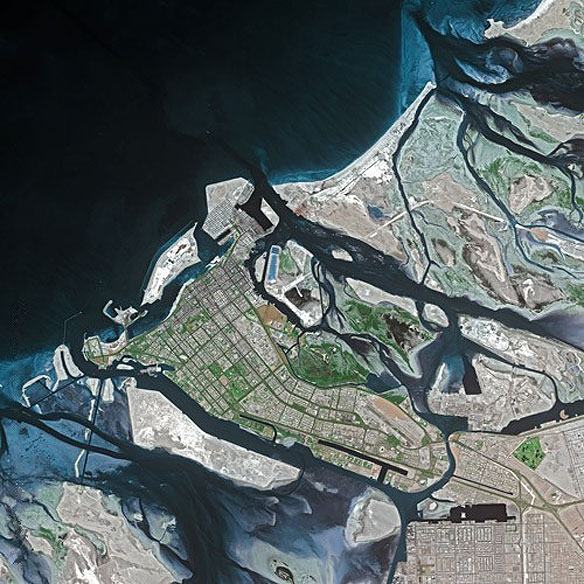Oceans May Explain Slowdown In Climate Change

Climate change could get worse quickly if huge amounts of extra heat absorbed by the oceans are released back into the air, scientists said after unveiling new research showing that oceans have helped mitigate the effects of warming since 2000.
Investing in Renewable Energy Means Investing in Lives

Residents of Albion, a small village in Pointe-aux-Caves, western Mauritius, say that by opposing the construction of a new coal power plant near their homes, they are defending their constitutional right to live.
New Study: A Warming World Will Further Intensify Extreme Precipitation Events

According to a newly-published NOAA-led study in Geophysical Research Letters, as the globe warms from rising atmospheric concentrations of greenhouse gases, more moisture in a warmer atmosphere will make the most extreme precipitation events more intense.
Rising Temperature Difference Between Hemispheres Could Shift Rainfall Patterns

One often ignored consequence of global climate change is that the Northern Hemisphere is becoming warmer than the Southern Hemisphere, which could significantly alter tropical precipitation patterns.
Scientists Link Frozen Spring To Dramatic Arctic Sea Ice Loss

Climate scientists have linked the massive snowstorms and bitter spring weather now being experienced across Britain and large parts of Europe and North America to the dramatic loss of Arctic sea ice.
When Giant Waves Strike, In Pictures

In an age of global warming and rising seas, featured are rare image of giant waves threatening towns, ships and coastal ecosystems.
Scientists Propose a New Architecture for Sustainable Development

As a United Nations working group negotiates a set of “sustainable development goals,” 10 scientists and development analysts, in a commentary published today in Nature journal, have proposed a fundamentally different way to frame this concept…
Petroleum Use, Greenhouse Gas Emissions of Automobiles Could Drop 80 Percent by 2050

A new National Research Council report finds that by the year 2050, the U.S. may be able to reduce petroleum consumption and greenhouse gas emissions by 80 percent for light-duty vehicles, cars and small trucks, via a combination of more efficient vehicles.
The World’s Largest Concentrated Solar Power Plant, Big Picture

The world’s largest concentrated solar power plant, Shams 1, launched on Sunday, representing a major milestone in the development of renewable energy in the Middle East. Taking three years to build, the $600m plant is located in Abu Dhabi’s western region, the heart of the UAE’s hydrocarbon industry.
